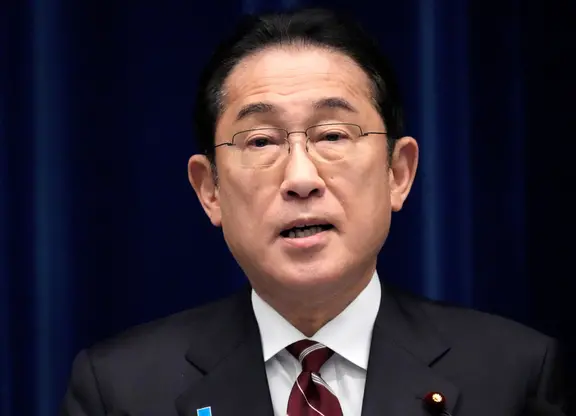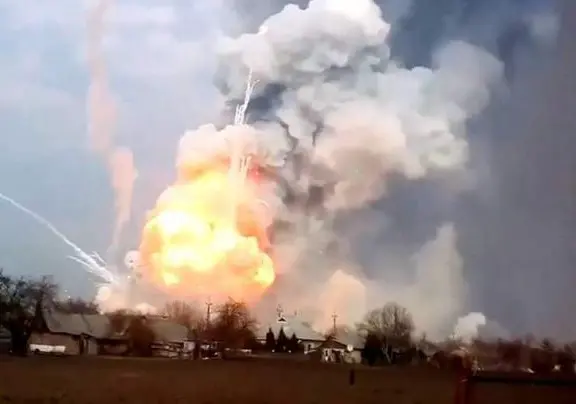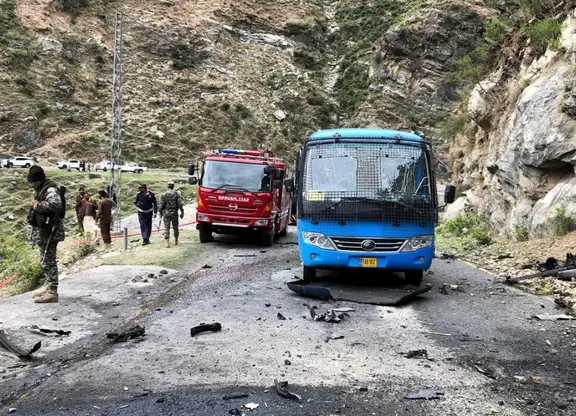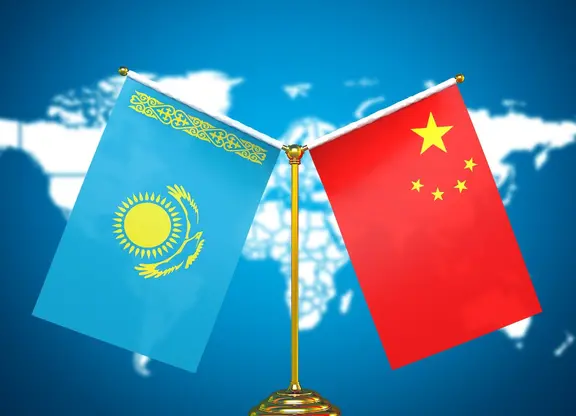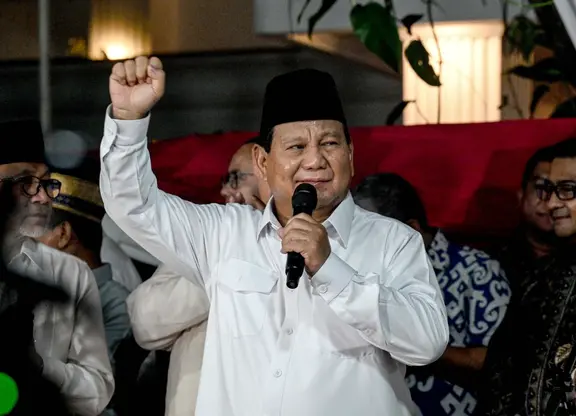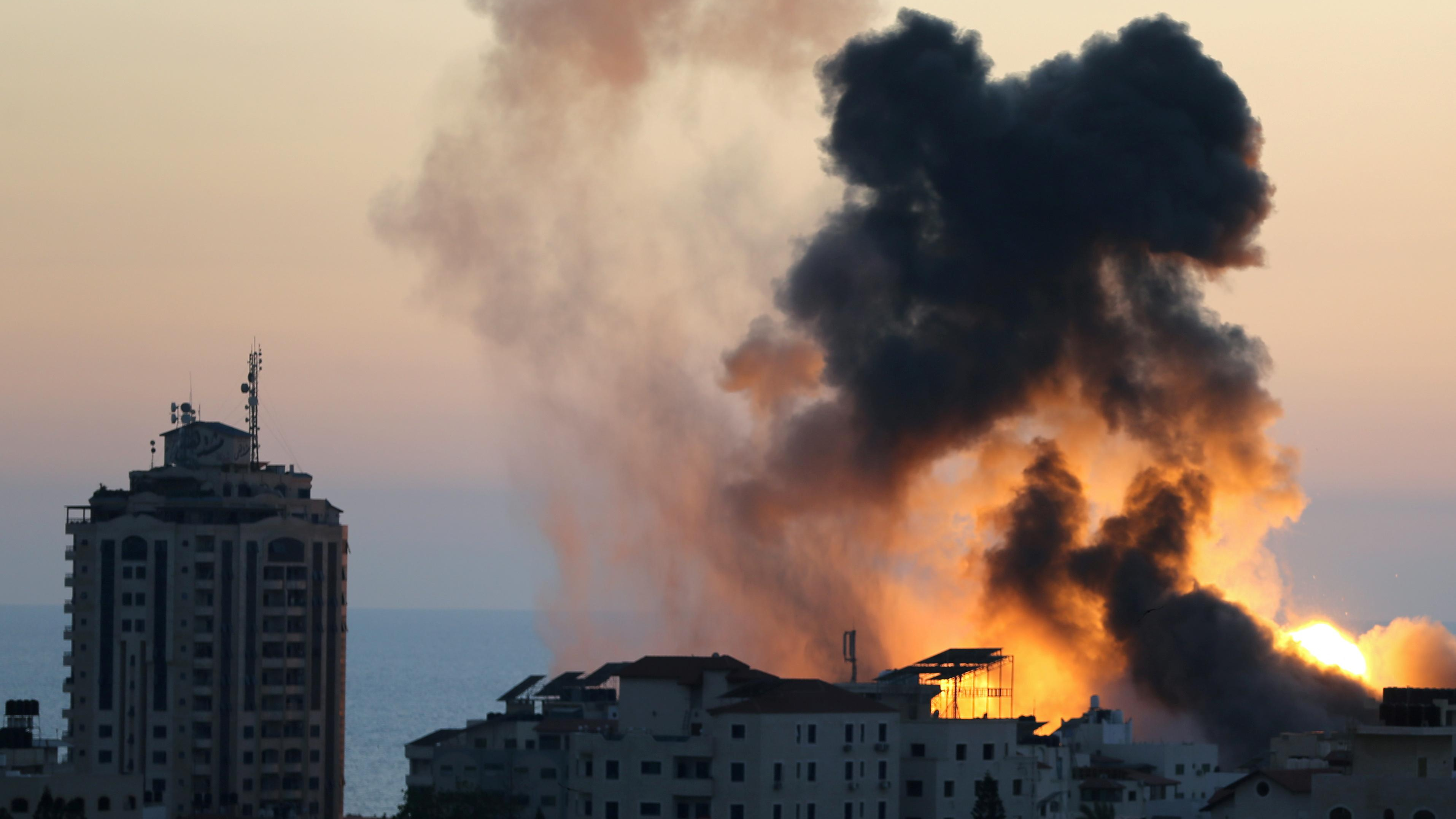
Smoke and flame rise during Israeli air strikes, as cross-border violence between the Israeli military and Palestinian militants continues, in Gaza City, May 14, 2021. /Reuters
Editor's note: Yuan Sha is an assistant research fellow at the Department of American Studies, China Institute of International Studies. A former Fulbright scholar at Columbia University, she has a PhD in International Politics from China Foreign Affairs University. Yuan has published several papers on China-U.S. security relations in Chinese academic journals and is a regular contributor for many Chinese media outlets. The article reflects the author's opinions, and not necessarily the views of CGTN.
Tensions between Israel and Palestine show no signs of abating, causing over a hundred deaths of civilians, mostly on the Palestinian side. The conflict is quickly spiraling into one of the worst violence between the two sides since the Gaza war in 2014. The U.S. obstructionism in the quick de-escalation of the conflict met blowback from the international community, revealing the moral weakness of its professed global leadership.
U.S. obstructionism
The U.S. has long played an obstructionist role in the Israel-Palestinian conflict. Despite successively lofty rhetoric of U.S. administration, the U.S. has repeatedly proven its halfheartedness in brokering a genuinely workable and durable peace deal.
To the dismay of the world, the U.S. wantonly used its veto power to obstruct a joint statement on May 12, prepared by the United Nations Security Council calling for restraints on all sides in East Jerusalem. The U.S. is the only outlier in the 15-member UN Security Council to oppose this move. It also blocked a Security Council meeting which was planned on Friday.
The U.S. is especially proactive in pushing for a pro-Israel narrative. Both U.S. President Joe Biden and State Secretary Anthony Blinken rushed to support Israel's "right to defend itself", but conspicuously downplayed the suffering of Palestinians. The U.S. one-sided support to Israel at the expense of the Palestinian people exposed how the U.S. is practicing double standards on the world stage and how indifferent it is to the gross violation of human rights. Its obstructionism against the UN collective effort toward peace also revealed the hypocrisy of the Biden administration's so-called embracing of multilateralism and the inherently unilateralist nature of U.S. foreign policy.

The explosion after an Israeli strike targeted a building in Gaza City, May 14, 2021. /Mahmud Hams/AFP
U.S. calculation
It seemed outrageous for the U.S. to go against the international community on the resolution of this humanitarian crisis, but it is a rational move in the Biden administration's strategic calculation both at home and abroad.
On the home front, the pro-Israel stance has been "politically correct." Pro-Israel interest groups have wielded influence in U.S. politics, where even a relatively balanced stance on Israel-Arab conflicts would prompt backlashes from them. As the political atmosphere in Washington D.C. is getting so toxic that political bipolarity overrides rational decision-making, the Biden administration would not risk giving fodder to the Republican Party by deviating from the pro-Israel stance.
On the international front, when choosing a side on the Israel-Palestine conflict, the U.S. has factored in its grand strategy. For a long time, the strategy of the U.S. in the Middle East is to ensure that no country or any groups can ever challenge it. While reorienting its strategic priority toward the Asia Pacific region, the Biden administration does not want any unfavorable forces taking advantage of the void it left in other parts of the world. Therefore, it would be in the interests of the U.S. to support its allies in the region as a way to maintain its hegemony.
Under pressure from the international community, the U.S. is likely to support an open-door meeting on this matter in the UN Security Council early next week Nevertheless, its intention is more on strengthening Israeli advantage on the battlefield than sincerely pushing for a quick solution. The U.S. is playing a dangerous game here since any delay of a UN action would only prolong the blood-shed conflict.
U.S. irresponsibility
The irresponsible actions of the U.S. government have put regional peace and stability at stake.
First of all, the unquestioning support for Israel and a lack of empathy for the Palestinians only show a moral hazard of the U.S., which will embolden aggressive actions by the Israelis and instigate grievance among Palestinians As a result, it risks prompting an all-out war between the two sides and disrupting the Arab-Israeli peace process.
Second, it would further incite racial hatred and religious strife. Violent clashes between Jewish and Arab residents are spreading across Israel, upending years of harmony between the two communities. It might even ignite the powder keg in the region by embroiling neighboring Arab nations into the turmoil.
Last but not least, as the crisis gets out of control, it would turn into a grave humanitarian crisis—a refugee overflow would make efforts combating the raging COVID-19 pandemic more difficult;It would also create a fertile ground for terrorism,further destabilizing the region and the world at large.
Right now, the international community needs to step up and broker a de-escalation solution. It is also a pre-requisite for stakeholders to work toward a viable "two-state solution" to ensure peaceful coexistence between the two sides, which is essential not only to the well-being of the two nations but also to that of the world at large.
(If you want to contribute and have specific expertise, please contact us at [email protected].)
 简体中文
简体中文



